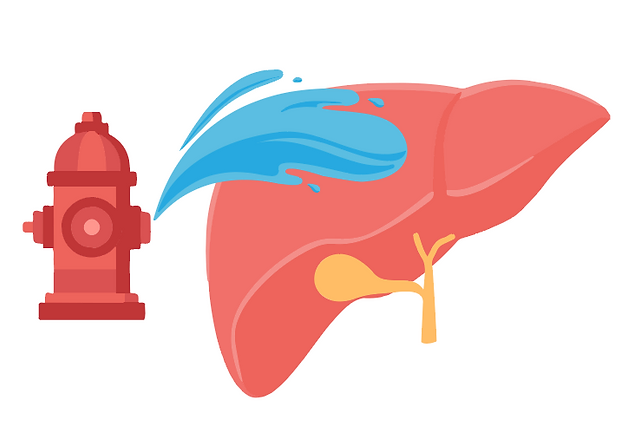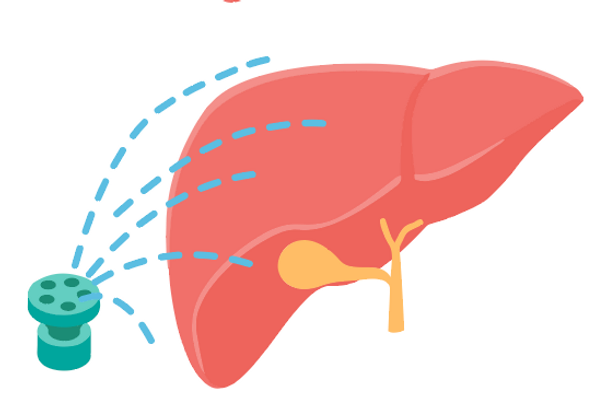Medications
While most patients take prednisone or budesonide, as well as azathioprine, there are several other medications to try if these don’t successfully bring down patients’ liver enzymes.
Types of medications.
Steroids
Fast-acting steroids like prednisone or budesonide quickly reduce liver inflammation and “put out the blaze.”

Immunosuppressants
Long-term immunosuppressants like azathioprine prevent further liver damage and possibly reverse existing fibrosis to “extinguish the embers.”

A fast-acting steroid.
AIH patients typically start taking a steroid, either prednisone or budesonide. Prednisone is better studied in AIH, cheaper, and more commonly prescribed, although budesonide is now an accepted medication to try first for AIH. Many patients prefer budesonide because they often experience fewer side effects. Budesonide targets inflammation directly in the liver while prednisone, on the other hand, affects the entire body, leading some patients to experience unwanted side effects like weight gain, moon face, impaired sleep, water retention, and elevated blood sugar. Many patients prefer budesonide, but it may not always be covered by insurance providers and can be expensive.
Budesonide should not be prescribed to patients with cirrhosis because complications of cirrhosis might prevent the drug from reaching the liver as intended. In addition, very few patients with cirrhosis taking budesonide have experienced portal vein thrombosis, a condition where a blood clot forms in the main blood vessel supplying the liver.
Long-term prednisone use can lead to irritability, weight gain, poor sleep, fluid retention, cataracts, and even increased risk of infection, among other side effects.

A long-term medication.
As liver enzymes approach normal levels or even before that, doctors may add a long-term immunosuppressant with a goal to reduce and eventually remove the steroid medication. Common long-term immunosuppressants used in AIH include azathioprine (Imuran), 6-mercaptopurine (Purixan or Purinethol), and even mycophenolate mofetil (Cellcept).
Before beginning azathioprine, it’s recommended to have a TPMT blood test to help determine if a patient is at the rare risk of reduced white blood cells associated with azathioprine or 6-mercaptopurine.
Up to 15% of patients may not tolerate azathioprine, typically because of gastrointestinal issues. For about half of the patients with these symptoms, a change to 6-mercaptopurine may be helpful.
Azathioprine has had an extremely small association with blood cancers such as acute myeloid leukemia or myelodysplastic syndromes, but the benefit of this medication for the treatment of AIH for most patients outweighs any risk. In addition, taking azathioprine comes with a small increased risk of non-melanoma skin cancer. Be sure to visit your dermatologist or primary care doctor for regular skin exams.
Many – but not all – patients experience side effects either from the disease itself or the medications used to treat the disease. Learn more about what it’s like to live with AIH.
